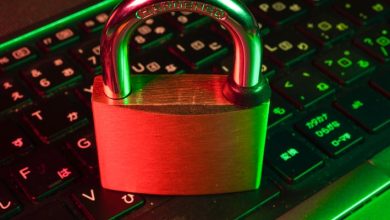The Importance of Regular Security Audits
- The Benefits of Regular Security Audits
- Protecting Your Data with Routine Security Audits
- Understanding the Role of Security Audits in Cybersecurity
- How Regular Security Audits Can Prevent Data Breaches
- The Key Components of an Effective Security Audit
- Ensuring Compliance Through Regular Security Audits
The Benefits of Regular Security Audits
Regular security audits are essential for any organization to ensure the safety and integrity of their data and systems. These audits help identify vulnerabilities and weaknesses in the security infrastructure, allowing for timely remediation before any potential breaches occur. By conducting regular security audits, businesses can stay one step ahead of cyber threats and protect their sensitive information from falling into the wrong hands.
One of the key benefits of regular security audits is the ability to detect and address security gaps before they are exploited by malicious actors. By proactively identifying vulnerabilities in the system, organizations can implement necessary security measures to prevent data breaches and other cyber attacks. This proactive approach can save businesses significant time and money that would otherwise be spent on recovering from a security incident.
Moreover, regular security audits can also help organizations comply with industry regulations and standards. Many regulatory bodies require businesses to conduct regular security assessments to ensure the protection of customer data and sensitive information. By staying compliant with these regulations, organizations can avoid hefty fines and maintain a positive reputation among their customers and partners.
In addition to enhancing security and compliance, regular security audits can also improve overall operational efficiency. By identifying and addressing security weaknesses, organizations can streamline their processes and reduce the risk of downtime due to security incidents. This increased efficiency can lead to higher productivity and profitability for the business as a whole.
Overall, regular security audits are a crucial component of any organization’s cybersecurity strategy. By conducting these audits on a consistent basis, businesses can protect their data, comply with regulations, and improve operational efficiency. Investing in regular security audits is an investment in the long-term success and security of the organization.
Protecting Your Data with Routine Security Audits
Regular **security audits** are essential for **protecting** your **data** from **cyber threats**. By conducting routine **security audits**, you can **identify vulnerabilities** in your **systems** and **networks** before they are **exploited** by **hackers**. These **audits** help **ensure** that your **data** is **secure** and **compliant** with **industry regulations**.
During a **security audit**, **security professionals** will **review** your **security measures**, **analyze** your **network traffic**, and **test** your **systems** for **weaknesses**. They will **provide** you with a **detailed report** of their **findings** and **recommendations** for **improvement**. By **acting** on these **recommendations**, you can **strengthen** your **security** posture and **reduce** the **risk** of a **data breach**.
In addition to **protecting** your **data**, **security audits** can also **help** you **save** **money** in the **long run**. **Identifying** and **fixing** **security vulnerabilities** **early** can **prevent** costly **data breaches** and **downtime**. **Investing** in **regular security audits** is a **proactive** **measure** that can **save** you from **costly** **consequences** in the **future**.
Overall, **protecting** your **data** with **routine security audits** is **essential** for **maintaining** the **integrity** and **confidentiality** of your **information**. By **staying** **vigilant** and **proactive** in **securing** your **systems**, you can **stay** one **step** ahead of **cyber threats** and **ensure** that your **data** is **safe** and **secure**.
Understanding the Role of Security Audits in Cybersecurity
Security audits play a crucial role in maintaining the overall cybersecurity of an organization. These audits involve a comprehensive review of the security measures in place to identify any vulnerabilities or weaknesses that could be exploited by cyber attackers. By conducting regular security audits, businesses can proactively assess their security posture and take necessary steps to strengthen their defenses.
During a security audit, various aspects of an organization’s security infrastructure are evaluated, including network security, data protection measures, access controls, and security policies. The goal is to ensure that all security measures are up to date and effective in mitigating potential risks. By identifying and addressing security gaps through audits, organizations can reduce the likelihood of a successful cyber attack.
Furthermore, security audits help organizations comply with industry regulations and standards related to cybersecurity. Many regulatory bodies require businesses to undergo regular security audits to ensure they are following best practices and protecting sensitive data. Failing to comply with these regulations can result in hefty fines and damage to the organization’s reputation.
Overall, security audits are an essential component of a robust cybersecurity strategy. They provide valuable insights into an organization’s security posture and help identify areas for improvement. By conducting regular audits, businesses can stay one step ahead of cyber threats and protect their valuable assets from potential breaches.
How Regular Security Audits Can Prevent Data Breaches
Regular security audits are crucial in preventing data breaches and ensuring the protection of sensitive information. By conducting routine assessments of your systems and networks, you can identify vulnerabilities and weaknesses that could potentially be exploited by cybercriminals. These audits allow you to address any security gaps before they are exploited, reducing the risk of a data breach occurring.
One of the key benefits of regular security audits is that they help you stay ahead of emerging threats and trends in the cybersecurity landscape. By staying proactive and vigilant, you can implement the necessary security measures to protect your data from evolving threats. This proactive approach can help you avoid the costly consequences of a data breach, such as financial losses, reputational damage, and legal liabilities.
Furthermore, regular security audits can help you comply with industry regulations and standards related to data security. By demonstrating that you have robust security measures in place, you can build trust with your customers and partners. This can enhance your reputation and credibility in the marketplace, giving you a competitive edge.
In conclusion, regular security audits are an essential component of a comprehensive cybersecurity strategy. By conducting these audits on a regular basis, you can proactively identify and address security vulnerabilities, stay ahead of emerging threats, and demonstrate your commitment to data security. Ultimately, investing in regular security audits can help you prevent data breaches and safeguard your sensitive information.
The Key Components of an Effective Security Audit
An effective security audit is crucial for ensuring the safety and integrity of a company’s digital assets. There are several key components that must be included in a security audit to make it comprehensive and thorough:
- **Vulnerability Assessment:** This involves identifying and assessing potential weaknesses in the system that could be exploited by malicious actors.
- **Penetration Testing:** This is a simulated cyber attack on the system to identify vulnerabilities and test the effectiveness of security measures.
- **Security Policy Review:** This involves reviewing and evaluating the company’s security policies and procedures to ensure they are up to date and effective.
- **Access Control Review:** This involves reviewing and evaluating the access controls in place to ensure that only authorized individuals have access to sensitive information.
- **Incident Response Plan Review:** This involves reviewing and evaluating the company’s incident response plan to ensure that it is comprehensive and effective in the event of a security breach.
By including these key components in a security audit, companies can identify and address potential security risks before they are exploited by cybercriminals. Regular security audits are essential for maintaining a strong security posture and protecting sensitive data from unauthorized access.
Ensuring Compliance Through Regular Security Audits
Regular security audits are essential for ensuring compliance with industry regulations and standards. These audits help organizations identify vulnerabilities and weaknesses in their security systems, allowing them to take proactive measures to address any issues before they are exploited by malicious actors. By conducting regular security audits, companies can demonstrate their commitment to protecting sensitive data and maintaining the trust of their customers and stakeholders.
During a security audit, a team of experts will assess the organization’s security controls, policies, and procedures to identify any gaps or deficiencies that could potentially be exploited by cybercriminals. They will also review the organization’s compliance with relevant regulations and standards, such as GDPR, HIPAA, or PCI DSS, to ensure that all necessary security measures are in place.
By conducting regular security audits, organizations can stay ahead of emerging threats and ensure that their security posture remains strong and resilient. These audits provide valuable insights into the effectiveness of existing security measures and help organizations prioritize their security investments to address the most critical vulnerabilities first.
In conclusion, regular security audits are a critical component of any organization’s cybersecurity strategy. By proactively identifying and addressing security risks, companies can protect their sensitive data, maintain compliance with industry regulations, and safeguard their reputation. Investing in regular security audits is an investment in the long-term security and success of the organization.



